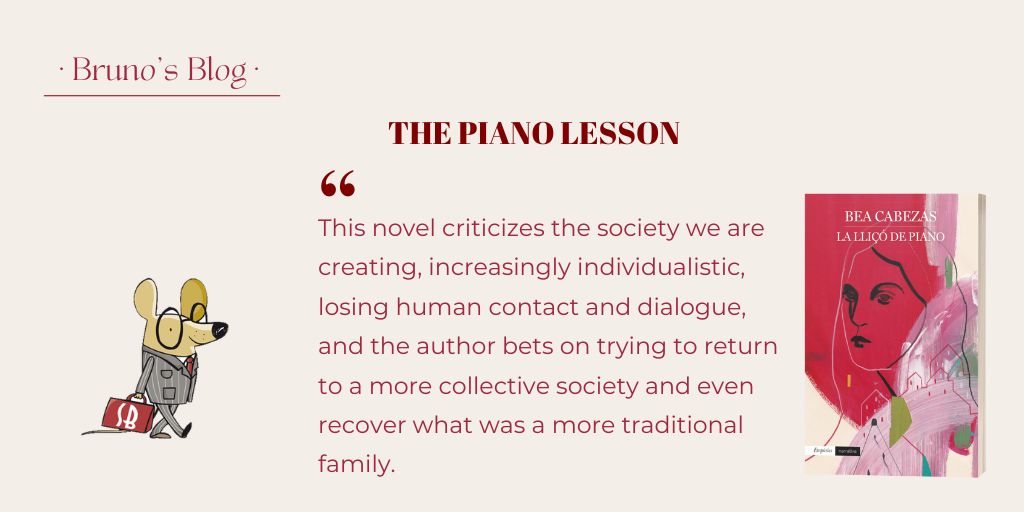Do we like the world we are building?
Bea Cabezas’ novel in a dystopian Barcelona, but not too distant (2060) was conceived, according to the author, imagining how her daughter, who has already been raised surrounded by technology, would act as a mother. Thinking how this will affect these new relationships, which are almost all through cell phones, losing dialogue and human contact. The Piano Lesson is a novel that talks about human relationships, but above all about the relationships between parents and children, and it is also an important reflection on motherhood.
One of the main characters, Sara, has just given birth in an abandoned apartment in the neighborhood called El Raval. She is only seventeen years old and ran away from home. In a more than precarious situation, she accepts that Àlex, the father, abandons the child in an affluent neighborhood, so that someone else can find her and take care of her. In her life, other lives marked by loss intersect: Pepe, a gardener who is going blind; Gloria, who struggles to defend the innocence of her daughter who died in a traffic accident while her husband escapes into alcohol; and Irene, who suffers the death of her mother and tries unsuccessfully to become pregnant. A few months after the birth, Sara tries to find her daughter again and comes into contact with Marga, a piano teacher who is running out of students.
This novel criticizes the society we are creating, increasingly individualistic, losing human contact and dialogue, and the author bets on trying to return to a more collective society and even recover what was a more traditional family. A work with short chapters and very well constructed characters that are intertwined and make it easy to read, while touching on deep issues that lead us to reflect. A perfect balance between a literary and a commercial work, that only good writers, like Bea Cabezas, know how to master to perfection.



